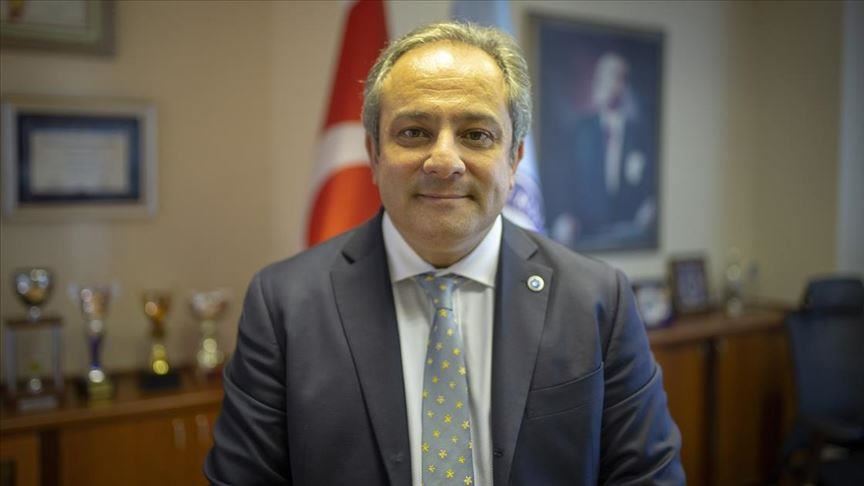ANKARA, TURKEY
The high number of ceremonies during summer, indifference of people to the pandemic measures and rise in domestic travels have raised the number of coronavirus cases in the country, especially the capital Ankara, said a member of the Turkish Health Ministry’s Social Sciences Advisory Board on Friday.
Dr. Mustafa Necmi Ilhan, the dean of Gazi University’s Medical School in the capital Ankara, told Anadolu Agency the reasons for the rise in the number of COVID-19 infections across the country, particularly in the capital.
Drawing attention to the latest cases in Ankara, Ilhan said the capital has been at the top in the number of COVID-19 cases for the last few days.
“When we look at the Health Ministry’s [mobile] HES application, we can see that almost the entire city is marked in red. If we ask why the numbers are high in Ankara, there are actually two main reasons for this,” he said.
He said one of these is that there are so many ceremonies, including those for weddings, circumcisions, and engagements in Ankara, particularly the street ceremonies.
“Although restrictions are imposed, these [activities] so far are among the important reasons for the rise in cases,” he added.
Highlighting the young people’s social activities, Ilhan said the young population gets together too often, and due to the gatherings of the young population, the disease is transmitted and people become infected.
“When we look into 1,700 cases diagnosed yesterday [Sept. 9], we know that 64 of them were under 14 years old and 226 of them between 15 and 24. Almost one in every six diagnosed people is under 24 years old — our young people and children,” he said.
He said these young people transmit the virus, bringing it into their environment, and they actually do not pay attention to that.
Socio-economic reasons
On another point, he stressed the socio-economic structure of the capital that people living in Ankara are mostly from the lower-middle, middle and upper-middle socio-economic levels.
“People in Ankara mostly go to their hometowns during their vacation. They also partially go to holiday resorts for short periods. Most public and private sector employees have taken their annual leaves together with Eid al-Adha holidays. The virus had spread across Turkey after Ankara, Istanbul, Izmir, Kocaeli, and Konya due to the lifting of inter-provincial travel restrictions.
“During their annual leaves, people transmitted the virus to others in places they went and raised the number of cases,” he said.
Ilhan underlined that when those people come back to the big cities such as Ankara, Istanbul, Kocaeli, Bursa or Konya, the number of infections would probably rise again.
On the solution, he said those who travel need to go into self-quarantine after they return.
Ilhan said they should restrict themselves at home for at least five days, as if they had been in contact with an infected person.
“However, considering working conditions, this seems unlikely. But, even if people do not self-quarantine after returning to Ankara from their vacation or hometown, they can still protect themselves and reduce the risk of infecting others — if they have the virus— by paying attention to social distance, mask, and hygiene rules as well as avoiding the crowded places,” he added.
The country’s overall infection count reached 286,455, with 1,512 new cases, according to Health Ministry data. Some 1,219 additional patients recovered over the past 24 hours, bringing the total to 255,407. The virus-linked death toll, meanwhile, rose to 6,895 as 58 more people succumbed to the disease.
The novel virus, which surfaced in the Chinese city of Wuhan last December, has infected over 28.2 million people, and claimed more than 910,100 lives in 188 countries and regions, according to the US’ Johns Hopkins University.

